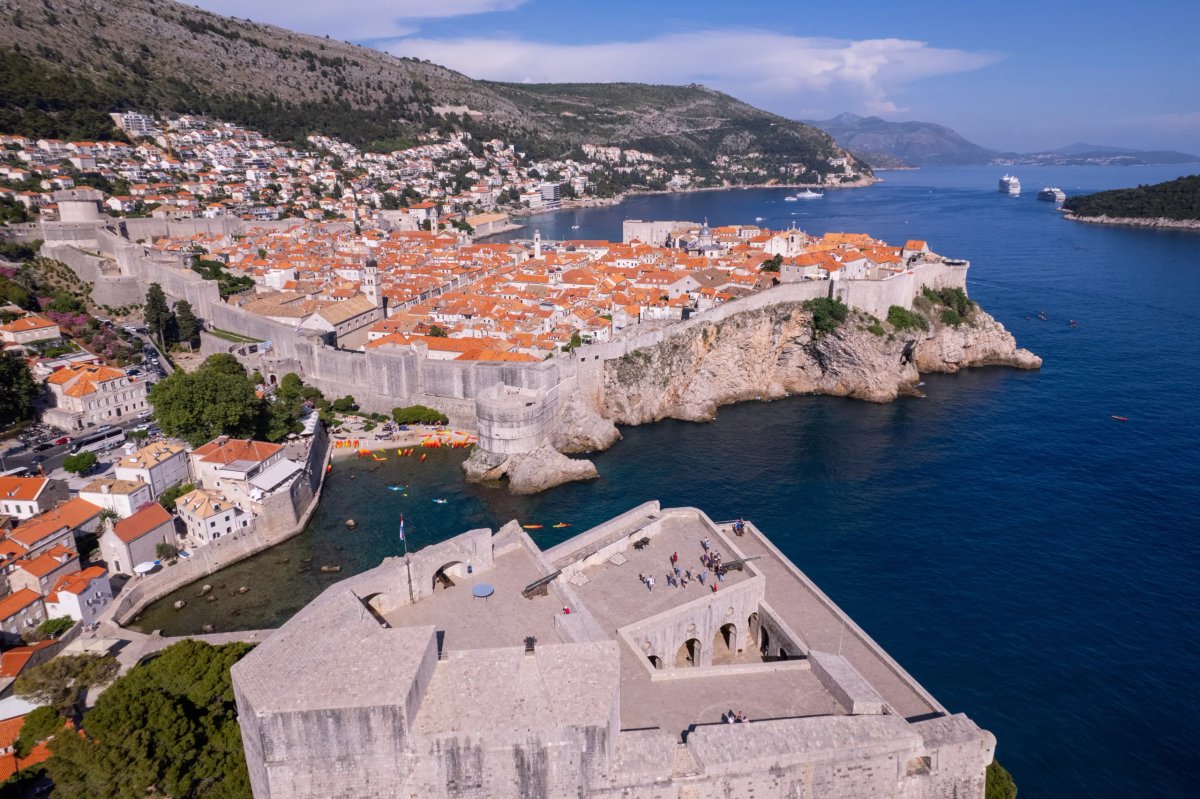Croatia’s tourist pearl Dubrovnik seeks to reclaim city for locals


By Antonio Bronic
DUBROVNIK, Croatia (Reuters) – Croatia’s historic city of Dubrovnik aims to lure back locals priced out by high tourist prices with a plan next month that includes banning new private rental permits, following the example of other popular destinations across Europe.
Dubrovnik, famed for its Baroque churches, Renaissance palaces and spectacular location on the Adriatic’s rocky coastline is a stop-off point for holiday cruises and attracts millions of global visitors that bring in much-needed revenues to the nation’s economy.
But the success of the UNESCO World Heritage site has come at a price. Tourists clog the narrow streets and push up rents. Locals occupy just 30% of the Old Town’s accommodation.
Before the break-up of Yugoslavia in the early 1990s, and Croatia´s independence war, some 5,000 residents lived there. Today, 1,200 remain.
“Young people will depart us, they will leave to some other places because it will be impossible to live in Dubrovnik,” Mayor Mato Frankovic told Reuters.
The city council is expected in April to pass a regulation banning new rental permits in the Old Town and its surrounding area, Frankovic said. The move is part of the city’s obligation to meet certain UNESCO rules, he said.
The city has already begun buying apartments that will be offered to young families under a 10-year lease, and will ban the short-term lease of flats in large apartment buildings. In 2018, it limited the number of tourists from cruises to 4,000 at a time.
“We shall protect the town’s historic foundations and enable the people to live and spend time there,” Frankovic said.
Other European authorities are also seeking to reclaim cities for local inhabitants. Portugal, for instance, has been acting to lower housing prices.
In Dubrovnik, not everyone agrees on the need for change.
Vedran Miovic, of the Hedera Estate agency that manages some 150 units in Dubrovnik, says private accommodation is “much better for the community” compared with big hotels and resorts, which he said only benefited big foreign funds.
Old Town resident Marija Trojenovic, however, welcomed the plans.
“Bring back people to the town because people make the town,” she said.
(Reporting by Antonio Bronic, writing by Daria Sito-Sucic; Editing by Edward McAllister and Barbara Lewis)
A UNESCO World Heritage site is a landmark or area recognized by the United Nations Educational, Scientific and Cultural Organization for its cultural, historical, scientific, or other forms of significance.
Private rental permits are licenses issued by local authorities that allow property owners to rent out their properties to tenants, often under specific regulations.
Short-term leasing refers to rental agreements that last for a short duration, typically less than a year, often used for vacation rentals or temporary housing.
Economic growth is the increase in the production of goods and services in an economy over a specific period, usually measured by GDP.
Local community engagement involves the active participation of community members in decision-making processes that affect their lives and environment.
Explore more articles in the Top Stories category











